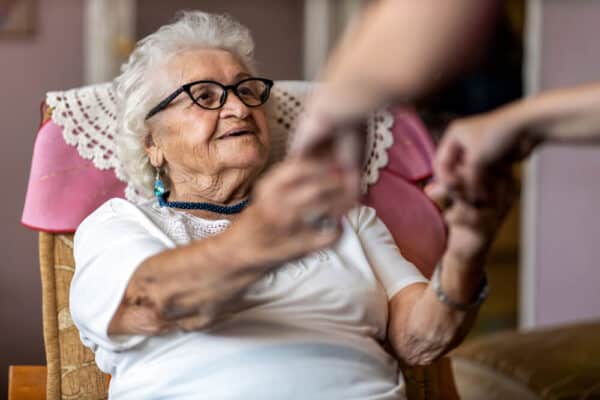Choosing between a traditional funeral and cremation can be a deeply personal decision influenced by various factors, including cultural, religious, financial, and personal preferences. Here’s a breakdown of considerations that might guide this decision-making process when planning your loved one’s funeral service.
Table of Contents
Things to Consider When Making Funeral Arrangements for a Loved One
When someone dies without leaving behind a record of their final wishes, it’s up to the family members to choose cremation or burial. While this blog’s goal isn’t to persuade you regarding cremation vs burial, we would like to give you some factors to consider when choosing between methods of disposition.
Cultural and Religious Beliefs
Many cultures and religions have specific rituals and traditions surrounding death and burial practices. So, it’s important to consider the wishes of the deceased and the beliefs of their family and community.
Some religions may mandate a particular approach, such as burial in Judaism or cremation in Hinduism. It’s important to note that the Catholic Church allows for cremation – as long as the cremated remains are treated with respect and placed in a qualified permanent resting place.
Cost
It’s ok to consider funeral costs when making decisions about end-of-life options. In fact, cost can be a significant factor in the decision-making process. Generally, cremation tends to be less expensive than a traditional burial because it eliminates the need for a casket, burial plot, and related expenses. However, cremation cost can vary widely depending on the provider or funeral home, location, services chosen, and options selected.
Funeral Service vs Memorial Service
Both traditional funerals and cremation offer opportunities for memorialization. A traditional funeral service often includes a visitation, funeral service, and graveside service, providing opportunities for family and friends to gather and pay their respects.
Cremation may involve a memorial service with the urn present, scattering of ashes in a meaningful location, or placement of ashes in a columbarium or memorial garden. Both burial and cremation services can be religious.
Flexibility and Personalization
Cremation offers more flexibility in terms of timing, location, and format of memorial services. Families can choose to hold a memorial service immediately following the cremation process or schedule it at a later date to accommodate travel or other considerations. Additionally, there are multiple options for cremated remains:
- Divided among family members.
- Placed in multiple locations.
- Incorporated into keepsake jewelry or other memorial items.
Types of Cremation
If you are considering cremation for your loved one, you must understand the available options.
Funeral homes offer traditional funerals followed by cremation. In this option, your loved one’s body is embalmed and placed in a casket (casket rental is typically available if you choose this option). Following the funeral rites, the body is placed in the cremation chamber, and the funeral director will later return the remains to the family.
However, if you want to reduce cremation costs and simplify the funeral planning process, consider direct cremation. In direct cremation, the body is transferred from the place of death to the cremation provider. Then, a family member receives the ashes in a cremation urn, which can be interred, scattered, or kept. Many families choosing cremation opt for direct cremation – as it is one way to lower the total cost of funeral services.
Ultimately, the decision between a traditional funeral and cremation should reflect the wishes of the deceased and their loved ones, taking into account cultural, religious, financial, and personal preference. It can be helpful to discuss these options openly with family members and loved ones and to consider seeking guidance from funeral directors or religious leaders if needed.
For direct cremation services in the Delaware Valley and the greater Philadelphia area, contact the Philadelphia Cremation Society. We will help you make an informed decision on how to honor your loved one’s life best. Our staff is available 24/7. Contact us to learn more about our services.
Key Takeaways: Traditional Funeral vs Cremation
- Some prefer traditional burials based on family tradition, personal beliefs, or religious considerations.
- Others prefer cremation, as it allows more flexibility when planning end-of-life services.
- Direct cremation helps families save a significant amount of money on funeral expenses.






